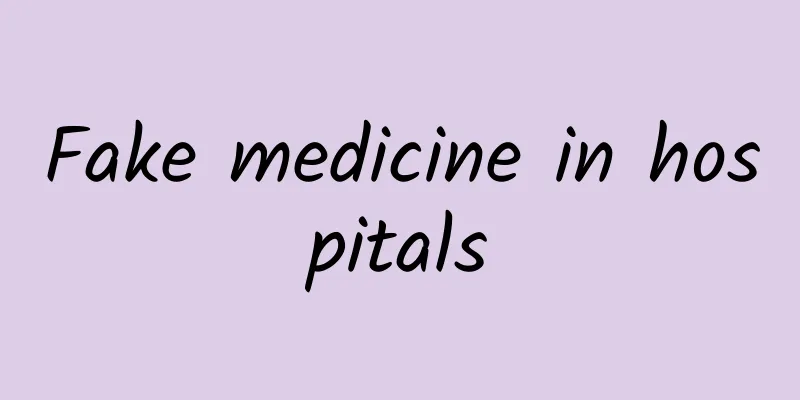Fake medicine in hospitals

|
This is the 4641th article of Da Yi Xiao Hu One day, a middle-aged lady came to the outpatient clinic. The patient was a follow-up patient. She came in with anger and said, "Doctor, your medicine is not effective at all. I feel nauseous and can't eat after taking it. Is your medicine "fake"? After listening to her, I quickly looked through her medical history and learned that the patient was diagnosed with "depressive episode" a week ago. It was the first time to take an antidepressant drug, the main mechanism of which is to inhibit the reuptake of serotonin (5-HT), that is, 5-HT reuptake inhibitors (SSRIs). 1. Is this drug a fake one? The answer is yes - it is not a fake drug. The drug has passed clinical trials, has its own ID card (drug approval number issued by the National Drug Administration), and is a regular drug. 2. So why is there no effect after taking the medicine for a week? That is because the pharmacological mechanism of the drug is to inhibit the reuptake of 5-HT by the 5-HT transporter to increase the concentration of 5-HT and further improve our mood. We hope to increase 5-HT on the target receptors and target pathways (axon terminals in the brain area) to produce therapeutic effects, such as improving depression and anxiety. However, in fact, during drug treatment, 5-HT on the cell body dendrites located in the raphe nucleus will increase first, and after a series of pharmacological effects, 5-HT on the axon terminals in the brain area will increase, which generally takes about two weeks. 3. Why are there adverse reactions? That's because during drug treatment, 5-HT in all pathways and receptors may increase. Some effects are undesirable, which are adverse reactions, such as increased gastrointestinal motility, gastrointestinal cramping and diarrhea. Many of the adverse reactions of SSRIs occur during the acute phase of treatment, when treatment is first started, and are gradually tolerated as treatment continues. Fortunately, most of the adverse reactions of SSRIs are just annoying and not very dangerous. Generally, they can be gradually reduced with treatment. However, for some patients, these adverse reactions may be severe, causing patients to stop taking the drug because they cannot tolerate it or cannot completely relieve their depressive symptoms. After listening to the doctor's explanation, the patient suddenly realized that the doctor had told me that this medicine takes a long time to work and may cause adverse gastrointestinal reactions. I'm sorry to have wasted your time, but your explanation has given me more confidence in the treatment. I'll go back and take it for a while and see. Author: Shanghai Fengxian District Mental Health Center Psychiatry Department Attending Physician Wang Chunlian Wang Jinde Attending Physician |
>>: Do this every day to slow down aging!
Recommend
What ribs to use for stewing rib soup (ribs with thin and lean meat, less oil, and tender taste)
...
Taboos for men with pregnant women at home
Pregnant women are very fragile during pregnancy,...
You must know these 4 invisible "killers" that harm your kidneys!
Recently, a young man in Guangdong was drinking a...
Will a woman's temperature rise before her period?
Menstruation is not unfamiliar to many female fri...
Do women age after menopause?
Women have their periods every month, but they wi...
Can sugar-free drinks help you lose weight? Drink like this, or you'll gain weight!
Author: Tian Dawei Reviewer: Zhang Na, Associate ...
Interesting Medicine Talk | Halometasone (with audio)
Your browser does not support the audio tag...
Will vaginitis affect my sex life?
Vaginitis is a very serious disease that troubles...
Be aware that feeling tired for no reason may be a sign of illness!
Some people are full of energy every day, while o...
What to eat to treat amenorrhea at the age of 45
Under normal circumstances, women will gradually ...
How to be a confinement nanny
We know that it is not easy to find a job, especi...
The wonderful use of expired yogurt with unusual smell How to ferment bread with expired yogurt
Many people like to drink yogurt, because milk als...
Why do women suddenly ignore you?
In life, many men may have encountered this pheno...
What happens when you faint in late pregnancy?
Fainting happens frequently in daily life for a v...
How to maintain the uterus after miscarriage?
Accidents are unavoidable in life. Some young peo...
![[Popular Science] Ten pieces of hard knowledge on myopia prevention and control, parents must read!](/upload/images/67f1ad758bad6.webp)








